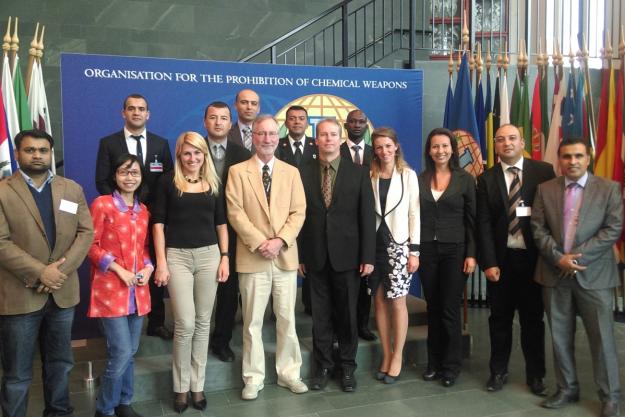
Participants at the first Laboratory Course on Analysis of Chemical Warfare Agents Samples.
A new series of courses on the analysis of chemical warfare agents samples in laboratories launched in the Organisation for the Prohibition of Chemical Weapons (OPCW) Laboratory on the 3-7 October 2016.
The courses are planned to be held annually and are targeted at assisting OPCW Member States in establishing effective chemical emergency protection systems.
“We hope that attendees will be better equipped to strengthen emergency preparedness in their respective states,” said Shawn DeCaluwe, Head of the OPCW’s Assistance and Protection Branch that runs the course.
These systems are of vital importance as, when faced with incidents involving chemical warfare agents or toxic industrial chemicals, it is essential that laboratories are capable of analysing samples effectively and efficiently.
To achieve this capability, the participants studied a number of analytical techniques. They learnt how to handle and prepare toxic samples and were given the opportunity to practically apply various methods of toxic agent identification, including gas chromatography with mass spectrometry detection data (GC/MS).
This pilot course, entitled Assistance and Protection Laboratory Course on Analysis of Chemical Warfare Agents Samples, was attended by representatives from eight OPCW Member States including, Algeria, Colombia, Indonesia, Jordan, Côte d’Ivoire, Pakistan, Slovakia and Uzbekistan.
